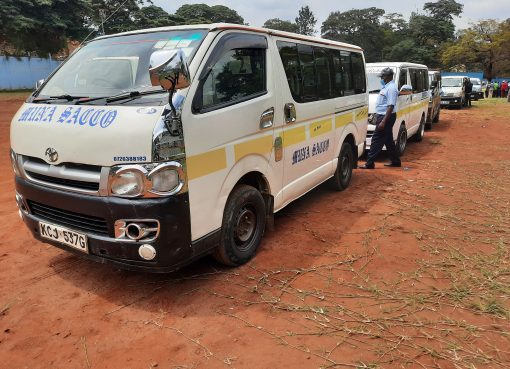African governments have been challenged to work with stakeholders along the agriculture value chain to harmonize intra-African food trade policies in order to increase trade across borders.
This will go a long way in opening up opportunities for women traders who make the bulk of grain traders in Africa, according to Beatrice Gakuba, the Executive Director of AWAN-Afrika.
Speaking in Mombasa Friday during the ongoing 8th African Grain Trade Summit, Gakuba said Africa has a unique opportunity to take advantage of the African Continental Free Trade Area (AfCFTA) to exploit the full potential of African women in agriculture and agribusiness.
Data from the United Nations Food and Agriculture Organization (FAO) indicates that despite accounting for 40 percent of the farm labour force on the continent and producing at least 70 percent of food consumed in Africa their role in agribusiness is still limited.
Gakuba said there is need to build the capacity of women traders so that they can access the bigger market created with the implementation of AfCFTA.
“At AWAN-Afrika, we noticed that even though women were in every stage of the agricultural value chain, those in agribusiness lack access to market information or where to get the right buyers for their produce,” she said.
Among AWAN-Afrika’s solutions to this is an E-Hub and the #Value4Her Connect platform, which are repositories of information on agriculture along value and supply chains for women and youth-owned agribusinesses.
In partnership with Technical Centre for Agricultural and Cooperation (CTA)’s #Value4Her project, AWAN-Afrika shares the first intelligent digital platform on the continent, #Value4Her Connect, which links women’s agribusinesses with exporters, investors, agri-tech companies and other value chain actors to facilitate inclusive participation in the continental and global market.
“Agribusiness is not just about profits, it is also about food security for a continent that still has a USD 35 billion and is expected to reach USD 110 in 2025,” said Sabdiyo Dido, Senior Technical Advisor, CTA.
According to the World Bank, just 5 percent of Africa’s imports of cereals come from other African countries. African governments have a chance now to formulate and harmonize food trade policies so that the private sector can take advantage of the investment opportunities available in this sector.
“Africa imports most of its grains from outside of the continent, largely due to ineffective grain supply chains aided by several tariff and non-tariff barriers,” added Gakuba.
The theme of this year’s AGTS was, “Transforming Grain Trade Value Chains for a Prosperous Africa”. It will seek to find solutions to the missing pieces of the grain trade puzzle and attempt to devise an action plan to transform grain trade value chains and to deliver more trade and better trade and ultimately deliver prosperity for Africa,” according to the East African Grain Council, the organizers of the summit.
The African Women Agribusiness Network (AWAN) – Afrika is a non-profit organization limited by guarantee. It provides a platform for African women and youth in Agribusiness to access markets, trade information and finance so as to leverage opportunities to increase trade in the regional markets, tap into the newly created Africa Continental Free Trade Area (AfCFTA) and the global market.
The network comprises of individual members’ businesses including producers, processors, aggregators, export companies and input suppliers among others across 35 countries in Africa.
Some 14 percent of AWAN-Afrika members from 12 different countries own agribusinesses trading in grains and cereals, while 67 percent of them are medium businesses with an annual turnover of $15,000 – $50,000.
By Joseph Kamolo
Friday, June 20, 2025




